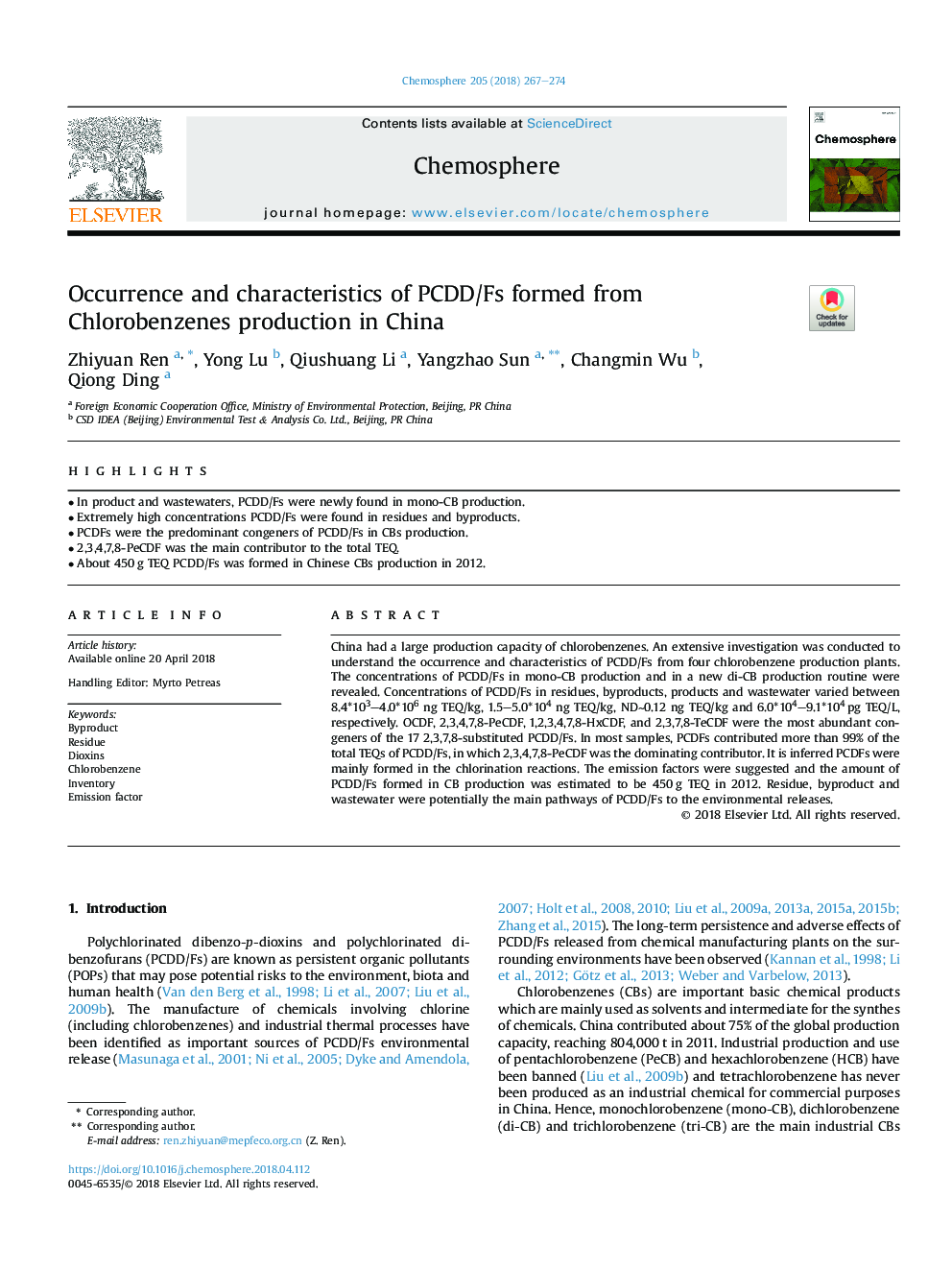| Article ID | Journal | Published Year | Pages | File Type |
|---|---|---|---|---|
| 8851047 | Chemosphere | 2018 | 8 Pages |
Abstract
China had a large production capacity of chlorobenzenes. An extensive investigation was conducted to understand the occurrence and characteristics of PCDD/Fs from four chlorobenzene production plants. The concentrations of PCDD/Fs in mono-CB production and in a new di-CB production routine were revealed. Concentrations of PCDD/Fs in residues, byproducts, products and wastewater varied between 8.4*103-4.0*106 ng TEQ/kg, 1.5-5.0*104 ng TEQ/kg, NDâ¼0.12 ng TEQ/kg and 6.0*104-9.1*104â¯pg TEQ/L, respectively. OCDF, 2,3,4,7,8-PeCDF, 1,2,3,4,7,8-HxCDF, and 2,3,7,8-TeCDF were the most abundant congeners of the 17 2,3,7,8-substituted PCDD/Fs. In most samples, PCDFs contributed more than 99% of the total TEQs of PCDD/Fs, in which 2,3,4,7,8-PeCDF was the dominating contributor. It is inferred PCDFs were mainly formed in the chlorination reactions. The emission factors were suggested and the amount of PCDD/Fs formed in CB production was estimated to be 450â¯g TEQ in 2012. Residue, byproduct and wastewater were potentially the main pathways of PCDD/Fs to the environmental releases.
Related Topics
Life Sciences
Environmental Science
Environmental Chemistry
Authors
Zhiyuan Ren, Yong Lu, Qiushuang Li, Yangzhao Sun, Changmin Wu, Qiong Ding,
